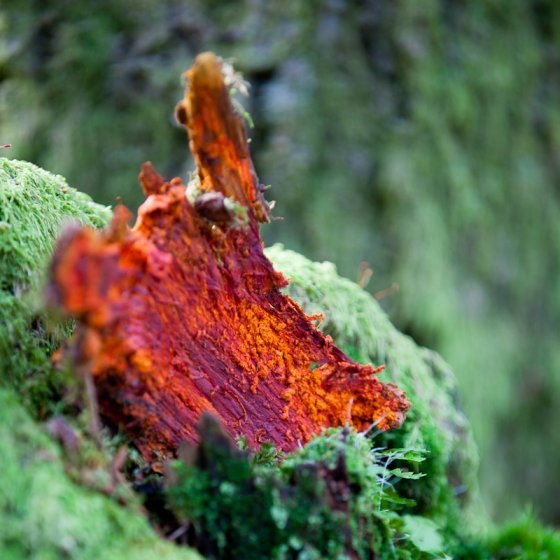This afternoon was the third time this week that Lola and I headed into Mugdock Wood for a wander and hopefully some photography of the devastation of fallen trees. Even after a week of cleanup, it still amazes me how much damage the last gales have caused in the city and the country side. I have never seen so much devastation and so many trees (and chimneys!) blown over.
On all three wanders, after an otherwise dry day, the rain started as soon as we left the car and headed along the tracks into the woods. Today, we retraced our steps from our previous wander, walking down the hill to the Allander Water and following the Wet Highland Way for half a mile or so.
The intention was to retake some shots (with the tripod this time) of a piece of bright red and orange bark that had fallen into a mossy hole in a broken tree. While Lola was running with a collie through the undergrowth I mounted the camera on the tripod and set about shooting the striking piece of bark.
Unfortunately, we started off too late and the light was gone, so with the combination of very long shutter times and dogs thumping past the tripod standing on very soft undergrowth, the results were a tad disappointing.
The rain started to get worse so we headed back and up the hill, where we got another photo opportunity, as the sky started to turn purple and red with the setting sun. Along our trek up the hill, I took quite a few shots of the silhouette of the birch trees against the colourful sky, both with a ‘steady’ camera and intentional camera movements.
Must go back soon, hoping that the striking piece of bark is still there and that third time is lucky.
